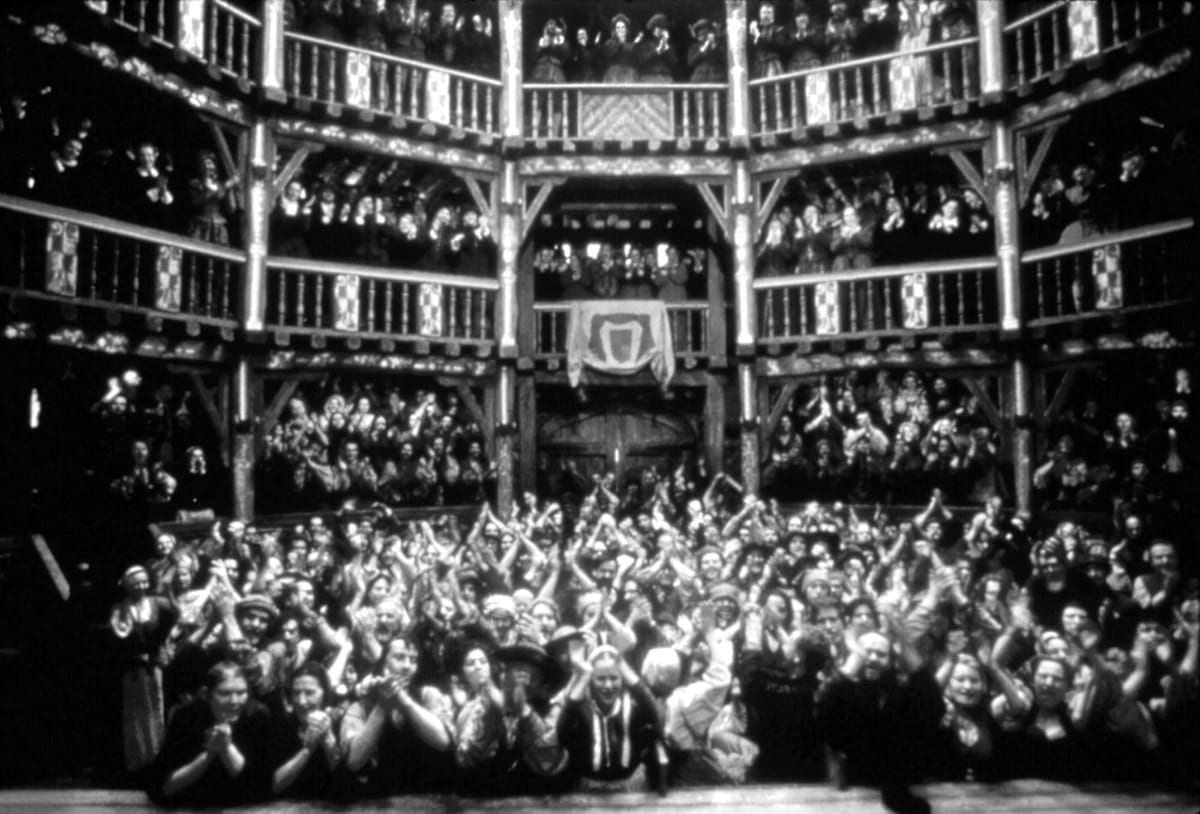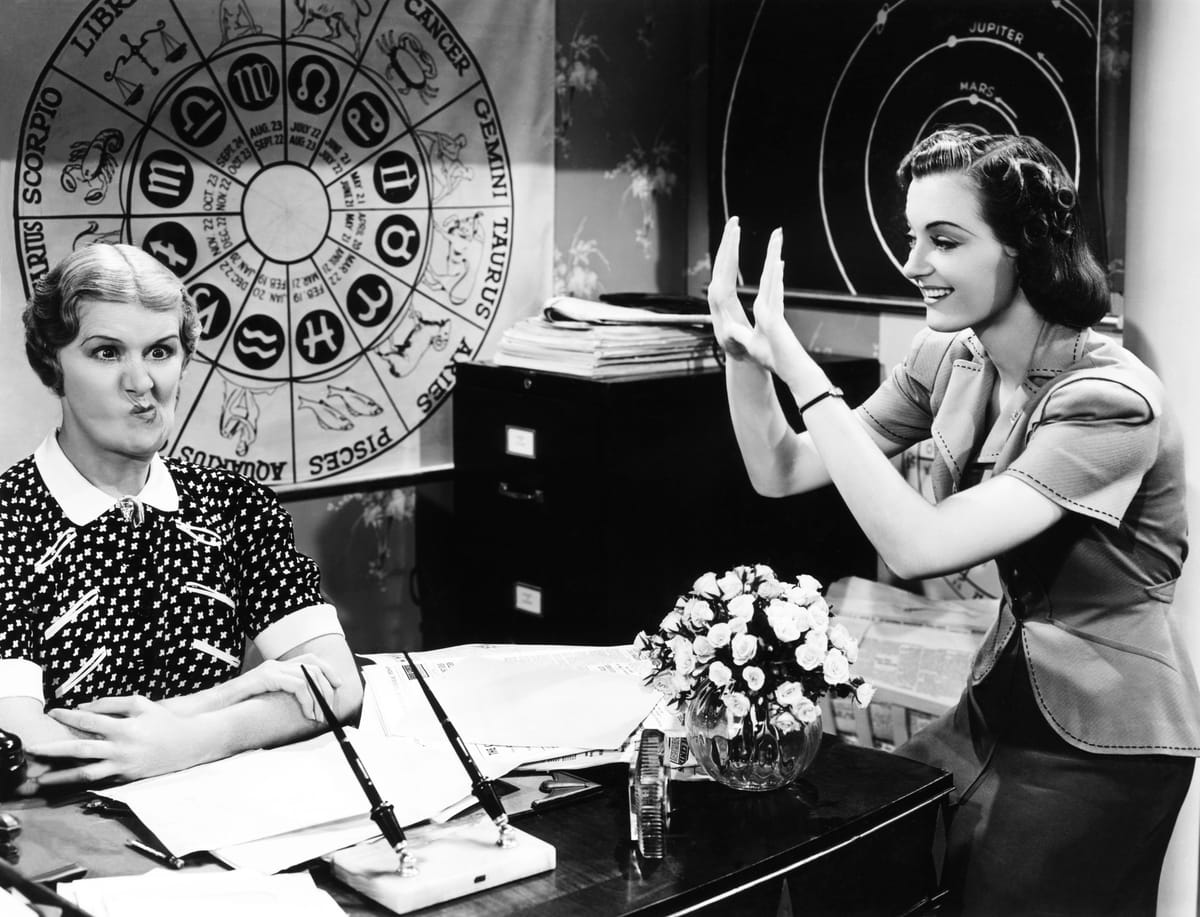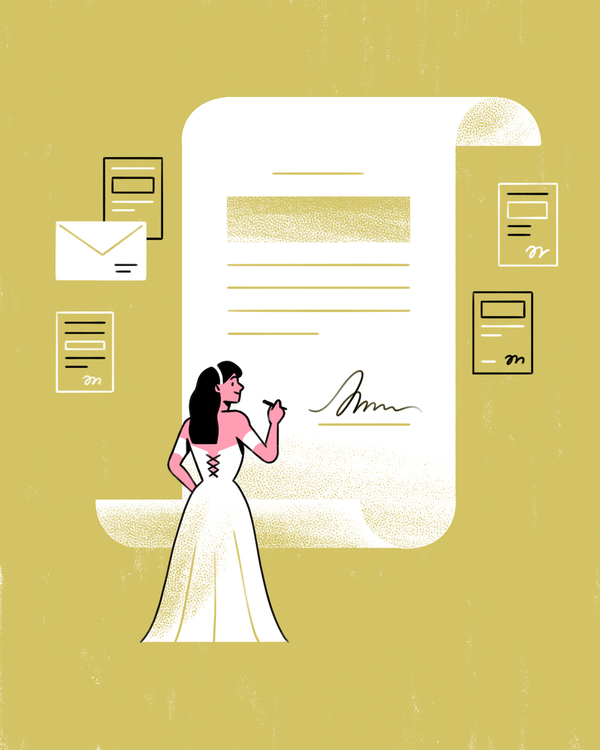I’m Trying to Embrace Mediocrity. How About You?
Making the case for being OK with just being OK.

It’s a Saturday night on Broadway. The protagonist utters his final line. For a moment there is silence. Pause. Beat, beat, beat. And then the audience erupts.
I’m in that audience. I’ve spent more money than I care to admit to see a play that has made headlines for commanding some of the highest ticket prices on Broadway. And, listen, the play itself was fine. But what happened next was not.
At first, the applause seems normal enough, if perhaps a tad overzealous. But then, I notice three men, just in front of me, pumping their fleshy palms as if they were engaged in some sort of primeval competitive sport. Then, to my horror, the middle guy rises from his seat. As he does, he lets out a hoot—a sort of full-throttled tribal battle cry which prompts his neighbors to join him on their feet.
From then on, the fervor spreads like wildfire. Soon, it seems, the entire venue is standing.
From then on, the fervor spreads like wildfire. Across the stalls, then the mezzanine and finally the balcony, theatergoers pop up like cartoon meerkats. Soon it seems the entire venue is standing. Even I am begrudgingly upright because it would be weird to be the only person still sitting: I am part of a rapturous standing ovation for a performance that was arguably only OK. It was not first rate, it was not exceptional. It certainly didn’t blow my mind or take my breath away. And in this moment, one pitiful question worms itself into my brain: Since when have we been showering the mediocre with outrageously exaggerated accolades?

The Brilliance Olympics
This is not the first time I’ve found myself longing to admit—for all of us to admit—that certain things are simply unremarkable. But it seems harder to admit than ever. In fact, over the past decade and a half of living in London and New York City—joint homes of the native overachiever—I’ve been struck by a culture of exceptionalism that seems to permeate everything.
You see it in everyone’s relentless pursuit of excellence. Everyone is training for a marathon; no one just goes for a slow jog around the neighborhood any more. Perhaps you have a book in you, or six or seven. How many of those are prize-winning? You might enjoy wine, but how large is your collection? Is your kid a straight-A student? If not, why not? A few years ago, I wrote an essay about a woman who was seeking a Rubik’s cube tutor for her 4-year-old. No, I’m not kidding.
It’s not only this spirit of exceptionalism that I’ve started to notice, it’s also a derivative of it—a tendency to frame things that are entirely standard as superior, as the brightest, the best, the funniest, the richest, or the first.
It’s not only this spirit of exceptionalism that I’ve started to notice, it’s also a derivative of it—a tendency to see something as exceptional when it’s simply not, to frame things that are entirely standard as superior, as the brightest, the best, the funniest, the richest, or the first.
That Broadway play is one example. Here are some others: On any given day, LinkedIn is awash with comments about career highlights, honors of a lifetime, greatest privileges and best bosses ever. I’m happy people are happy. But a scroll through the platform suggests we live in a world in which no one ever has a run-of-the-mill day. It’s truly become a world in which everyone’s a contestant in the brilliance Olympics.
I see it on my 7-year-old’s homework. “Amazing work!!!!” is the praise she gets for skip-counting to 20. Of course, I’m happy she nailed it. But four exclamation marks, a smiley face and an actual gold star? Where on earth does she go from here?
Even in inane small talk, performative exceptionalism raises its ridiculous head, and mortifyingly I’m just as guilty as everyone else. Just today, I ran into my neighbor on the street. It was the hottest day of the year in New York City (at around 101 degrees Fahrenheit, it was, in fact, New York’s hottest day on record since 2012) and the air conditioner in my apartment had given up the ghost.
“How are you doing?” he smilingly inquired. “I’m great!” I beamed back, entirely belying my profound discomfort and distress.
So Tired
Perhaps the reason why outsized praise and performative brilliance is irritating me so much right now, is because it creates unattainable standards and, like so many of us, I’m just so damn tired. Life is hard. Things are expensive. Work is complicated. The headlines are devastating. And relatively speaking, I have it easy.
Outsized performative brilliance sows constant seeds of doubt: Is everyone really getting promoted? Climbing Mount Everest? Doing things that make them just so happy and just so proud? And if so, what on earth is happening to me? Where did I go wrong? As we collectively run on the metaphorical treadmill, wouldn’t it be lovely to just slow down a touch, perhaps to a walk, and to—you know accept that a B+ is actually just fine?
Is everyone really getting promoted? Climbing Mount Everest? Doing things that make them just so happy and just so proud?
It’s been a good few years since we all seemed to agree that leaning in was not the key to personal and professional success—and not actually a fitting mantra for being a good feminist after all—and yet, whether we’re acknowledging it or not, we still seem to be aspiring to it. At the very least we like to signal that it’s the noble and admirable thing to do. For all that talk of the pandemic humanizing the world of work, presenteeism is still proving to be unshakeable. And even outside of the paid work we do, many of us still find ourselves in a competitive rat race when it comes to everything from parenting, to vacationing, to hosting a dinner party. Check Instagram for evidence. It’s hustle culture in all but name and it makes me sad.
We need to take everything down a notch and start embracing mediocrity. That means our own as well as everyone else’s. (Or, at least, let’s stop pretending mediocrity is worthy of a standing ovation.) In a 2018 essay in praise of mediocrity, the author and Columbia law professor Tim Wu wrote that we are losing “the gentle pursuit of modest competence, the doing of something just because you enjoy it, not because you’re good at it.” This is exactly what I’m talking about.
We sometimes seem to forget that merely getting through the day is fine. Laughing at something ridiculous is often a win.
Many forces that are painful and upsetting right now are entirely beyond our control. What we can control is the expectations we set ourselves when it comes to who we want to be, and what we want to achieve. We sometimes seem to forget that merely getting through the day is fine. Laughing at something ridiculous is often a win. Failing at something ungracefully can be hilarious. Trying something new might just be thrilling even if—and perhaps especially if—we’re atrocious at it.
What else might we have time for if we stop chasing personal records and rounds of applause? What’s the worst thing that can happen if we simply make a cup of tea, write an awful poem, doodle poorly, take a nap? The act of idly watching the world go by is really what you make of it. It might be a colossal waste of time. Then again, it might be the best thing you did all week.












